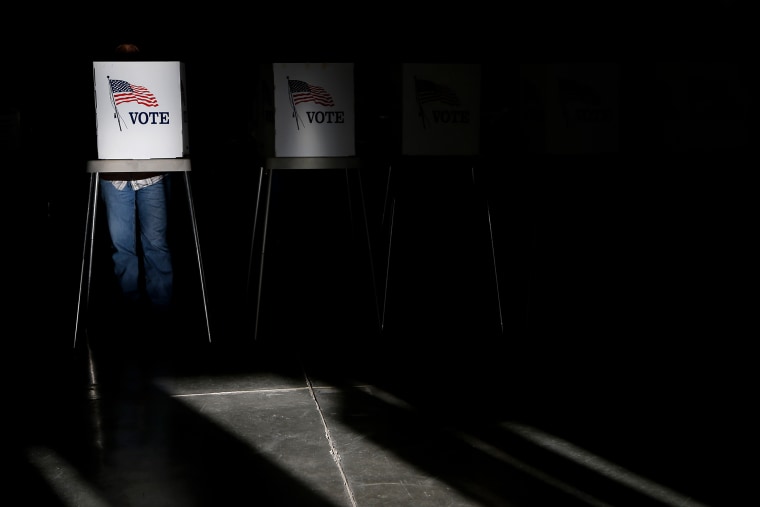It was just last month when much of the nation's attention turned to Selma, Alabama, where Americans saw former President George W. Bush stand and applaud a call for Congress to restore the Voting Rights Act with a bipartisan bill. Many wondered if, maybe sometime soon, Congress' Republican majority might agree to tackle the issue.
Voting-rights advocates probably shouldn't hold their breath. Soon after the event honoring those who marched at the Edmund Pettus Bridge a half-century ago, Senate Majority Whip John Cornyn (R-Texas) dismissed the very idea of working on the issue. "I think Eric Holder and this administration have trumped up and created an issue where there really isn't one," the Texas Republican said.
Asked if Congress should repair the Voting Rights Act formula struck down by the Supreme Court, Cornyn replied, simply, "No."
Yesterday at the National Press Club, another key GOP senator echoed the sentiment.
Sen. Chuck Grassley (R-Iowa), chairman of the Judiciary Committee, said Monday he doesn't expect to bring up legislation to restore the Voting Rights Act, because lots of minority people are already voting. [...] "It depends on what you want to fix," he said. "If you want to fix more minorities voting, more minorities are already voting."
The Iowa Republican said the "original intent" of the Voting Rights Act is no longer applicable because "in the last 50 years, it's made great progress."
As a factual matter, it's true that lots of voters from minority communities vote. It's also true that the nation has made "great progress" as compared to a half-century ago.
But given every relevant detail, Grassley's posture is tough to defend.
Between the Supreme Court's ruling on the Voting Rights Act and a coordinated Republican campaign, half the nation's states "have adopted measures making it harder to vote" since 2011. Ari Berman recently added that from 2011 to 2015, "395 new voting restrictions have been introduced" in 49 states.
To see the Voting Rights Act as some kind of quaint relic, no longer needed or valuable in today's society, is to deny the basics of recent events. The organized assault on voting rights in recent years is unlike anything Americans have seen since the Jim Crow era, making the Voting Rights Act critically important.
What's more, the Supreme Court's ruling on the VRA came with a call from the majority justices for lawmakers to craft a new formula for federal scrutiny. There was, in other words, an expectation that Congress, which reauthorized the VRA repeatedly and easily over the decades, would respond to the court ruling with a revised policy.
And yet, here are leading Senate Republicans effectively responding, two years later, "Nah, let's not bother to do anything at all."
